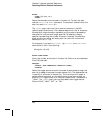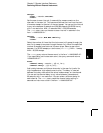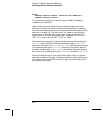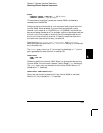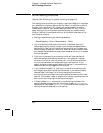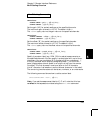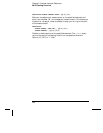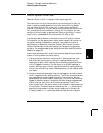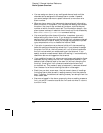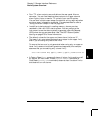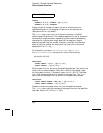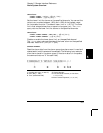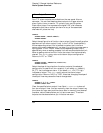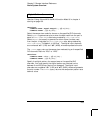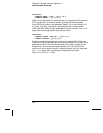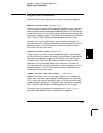
• You can assign an alarm to any configured channel and multiple
channels can be assigned to the same alarm number. However,
you cannot assign alarms on a specific channel to more than one
alarm number.
• When an alarm occurs, the instrument stores relevant information
about the alarm in the queue. This includes the reading that caused
the alarm, the time of day and date of the alarm, and the channel
number on which the alarm occurred. The information stored in the
alarm queue is always in absolute time format and is not affected by
the FORMat:READing:TIME:TYPE command setting.
• You must configure the channel (function, transducer type, etc.)
before setting any alarm limits. If you change the measurement
configuration, alarms are turned off and the limit values are cleared.
Alarms are also turned off when you change the temperature probe
type, temperature units, or disable the internal
DMM.
• If you plan to use alarms on a channel which will also use scaling,
be sure to configure the scaling values first. If you attempt to assign
the alarm limits first, the instrument will turn off alarms and clear
the limit values when you enable scaling on that channel. If you
specify a custom measurement label with scaling, it is automatically
used when alarms are logged on that channel.
• If you redefine the scan list, alarms are no longer evaluated on those
channels (during a scan) but the limit values are not cleared. If you
decide to add a channel back to the scan list (without changing the
function), the original limit values are restored and alarms are
turned back on. This makes it easy to temporarily remove a channel
from the scan list without entering the alarm values again.
• Each time you start a new scan, the instrument clears all readings
(including alarm data) stored in reading memory from the previous
scan. Therefore, the contents of reading memory are always from the
most recent scan.
• Alarms are logged in the alarm queue only when a reading crosses a
limit, not while it remains outside the limit and not when it returns
to within limits.
Chapter 5 Remote Interface Reference
Alarm System Overview
248



